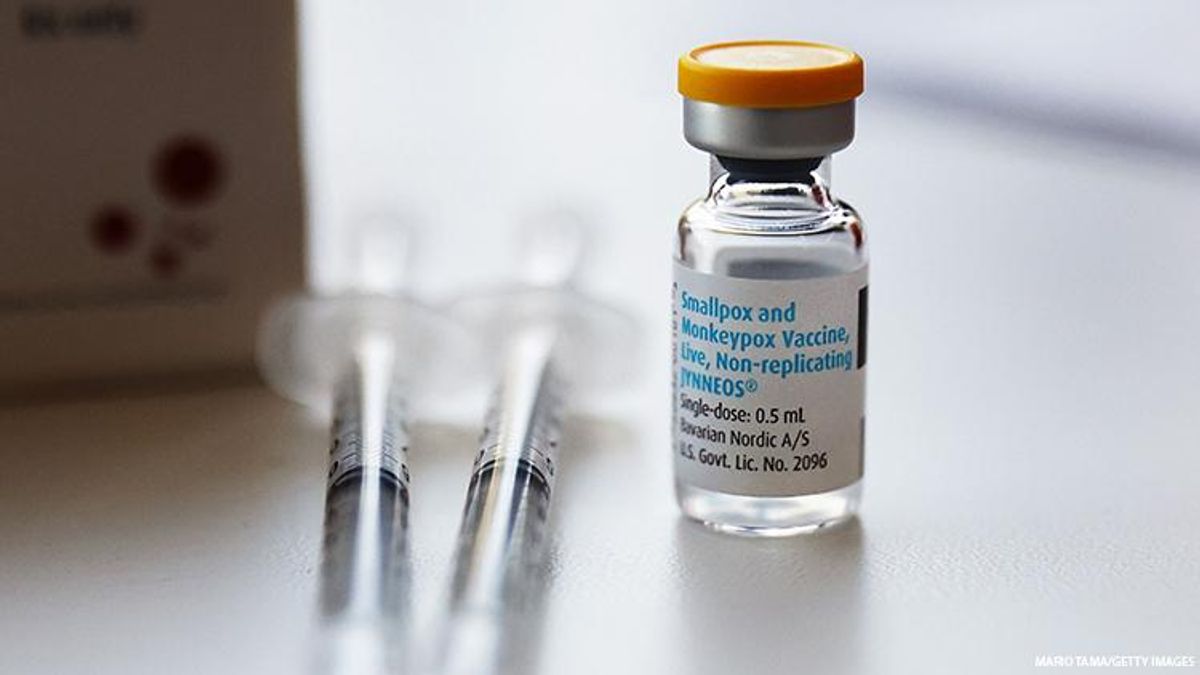All Rights reserved
By continuing to use our site, you agree to our Private Policy and Terms of Use.
(CNN) -- Eligible individuals who did not receive the monkeypox vaccine were around 14 times likelier to become infected with the virus than those who were vaccinated, according to federal government data described to CNN by multiple US health officials.
That figure reflects the first wave of authoritative data collected by the Biden administration on the efficacy of the monkeypox vaccine that is currently being administered across the United States. The data marks an important milestone in the administration's fight against monkeypox, particularly given the unprecedented nature of this year's outbreak. Details of these early findings, said to be based on data collected from 32 states, could be unveiled publicly as early as Wednesday, when the White House monkeypox response team is expected to hold its next press briefing.
Multiple health officials said that the vaccines data has the administration feeling increasingly optimistic about the efficacy of the two-dose Jynneos monkeypox vaccine -- and the possibility of ultimately eliminating the current outbreak in the US altogether.
"We are cautiously optimistic about the study and think if we continue to get vaccines out to those that are at highest risk for disease, and if we continue to promote the behavioral changes that we know work, that the combination of those two will allow us to continue to see decreases in cases and hopefully eliminate the current monkeypox outbreak in the United States," one senior health official told CNN.
Trending stories
The official cautioned that there are some important caveats to the findings. For example, the latest study can't say how much changes in human behavior might be a factor for the vaccinated individuals, they said.
"What it doesn't let us do is fully disentangle pieces of this that may be behavioral change pieces that may be related to sexual networks or to who people are coming into contact with," the official said. "We know that at the start of the monkeypox outbreak, a lot of gay and bisexual men changed their behaviors."
There are also outstanding questions about durability of the vaccine and how long the protection would last. US health officials have seen protection from monkeypox for those vaccinated with Jynneos as early as two weeks after the first dose, but are continuing to push for anyone eligible to get both doses of the vaccine regimen for maximum protection.
"We know this is a two-dose vaccine and we're continuing to encourage people to get the second dose because all of the prior studies have shown that when you get that second dose, you have a more profound immune response," the official said.
These findings coincide with a sense of "cautious optimism" recently expressed by top US health officials about the general trajectory of the outbreak, as the country has seen a decline in new monkeypox cases. More than 25,000 US monkeypox cases have been identified during the outbreak.
"Over the last several weeks, we've been pleased to see a decline in the growth of new cases here and abroad, though there are areas of the US where the rate of rise in new cases is still increasing," US Centers for Disease Control and Prevention Director Dr. Rochelle Walensky said earlier this month. "We approach this news with cautious optimism."
The-CNN-Wire
(tm) & (c) 2022 Cable News Network, Inc., a Warner Bros. Discovery Company. All rights reserved.
Find out more about monkeypox by going to the CDC's website here.


















































































